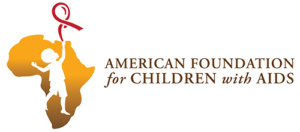What makes us do what we do? What makes us value the life of a person we’ve never met and might never meet? What is the difference between those who value the lives of others and those who don’t really bother to even think of others, but rather, focus on themselves?
We ask these questions as we watch clips of Martin Shkreli and hear about his antics on TV and social media. How does a person become so self-absorbed to the point where they feel no problem raising the price of an important medicine from $13.50 to $750 per pill? We see Mr. Shkreli smiling when asked questions about what he has done, not caring about how his actions affect anyone other than himself.
 In our world, $13.50 per pill is too high a price to pay, as it is. In a world where $1.50 is as much as a person earns in a day, it seems extraordinary that someone like Mr. Shkreli would not take others into consideration when making decisions that affect so many.
In our world, $13.50 per pill is too high a price to pay, as it is. In a world where $1.50 is as much as a person earns in a day, it seems extraordinary that someone like Mr. Shkreli would not take others into consideration when making decisions that affect so many.
We are happy to stand in stark contrast to the Martin Shkreli’s of this world. As an example: one day, the American Foundation for Children with AIDS (AFCA) received a call regarding a 12- year old girl named Susan, from Kenya. Susan was HIV+ and she had grown resistant to the medicine her hospital was able to access. Her only chance at survival was a new drug, being tested in a few specific countries. Susan’s doctor was desperate to see if Susan could be added to the trial, as he didn’t see any other way for her to live and he wanted to know if we’d take on the role of finding a way to get her into the trial.
Looking at all her medical records and imagining her little face, we started making calls. And calls. And more calls. These were followed by emails and a few more calls. Conversations were happening in USA, Romania, Russia, Tanzania, and other places. “No, we aren’t doing trials in Kenya” led to “let me see what we can do for Susan”, which led to, “I think we might be able to do something, but we need lots of paperwork. Are you willing to do it and to go through a rigorous process?” We were willing and we did everything required of us until Susan was admitted into the trial and she could get the medicine she needed.
Another day, we received an email from our partner in Uganda, desperate for specific medicine needed by five children. Five. Not millions, but rather, five precious children who need the medicine to live. Once again, we at AFCA buckled down and did what we needed to do in order to get the medicine to the children and we will do it again and again so that those five have a future.
Why would we do it again? Because life has value and it is precious.
Because we would want someone to do the same for our own children if they ever needed something.
Because we are a part of the human race and we need to take care of each other.
Because it is the right thing to do.
Because, as Dr. Seuss taught us, “A person is a person, no matter how small”.
It is because we value life so much that the actions of people like Martin Shkreli are so incomprehensible. We fail to understand how someone can callously raise the price of important, much needed medicine like Daraprim to the point where people can no longer afford it. What gain, other than monetary wealth does he achieve? And, is that monetary wealth worth it? We would argue that it is not. We would argue that decency, kindness, and compassion should be the motivators for why we do what we do – not wealth, fame, or prestige.
We hope that one day, the Martin Shkrelis of this world will realize that greed and arrogance will not help this world become a better place. Acts of kindness and decency, on the other hand, make all the difference.
Just ask Susan’s grandfather and the parents of the five Ugandan children.

